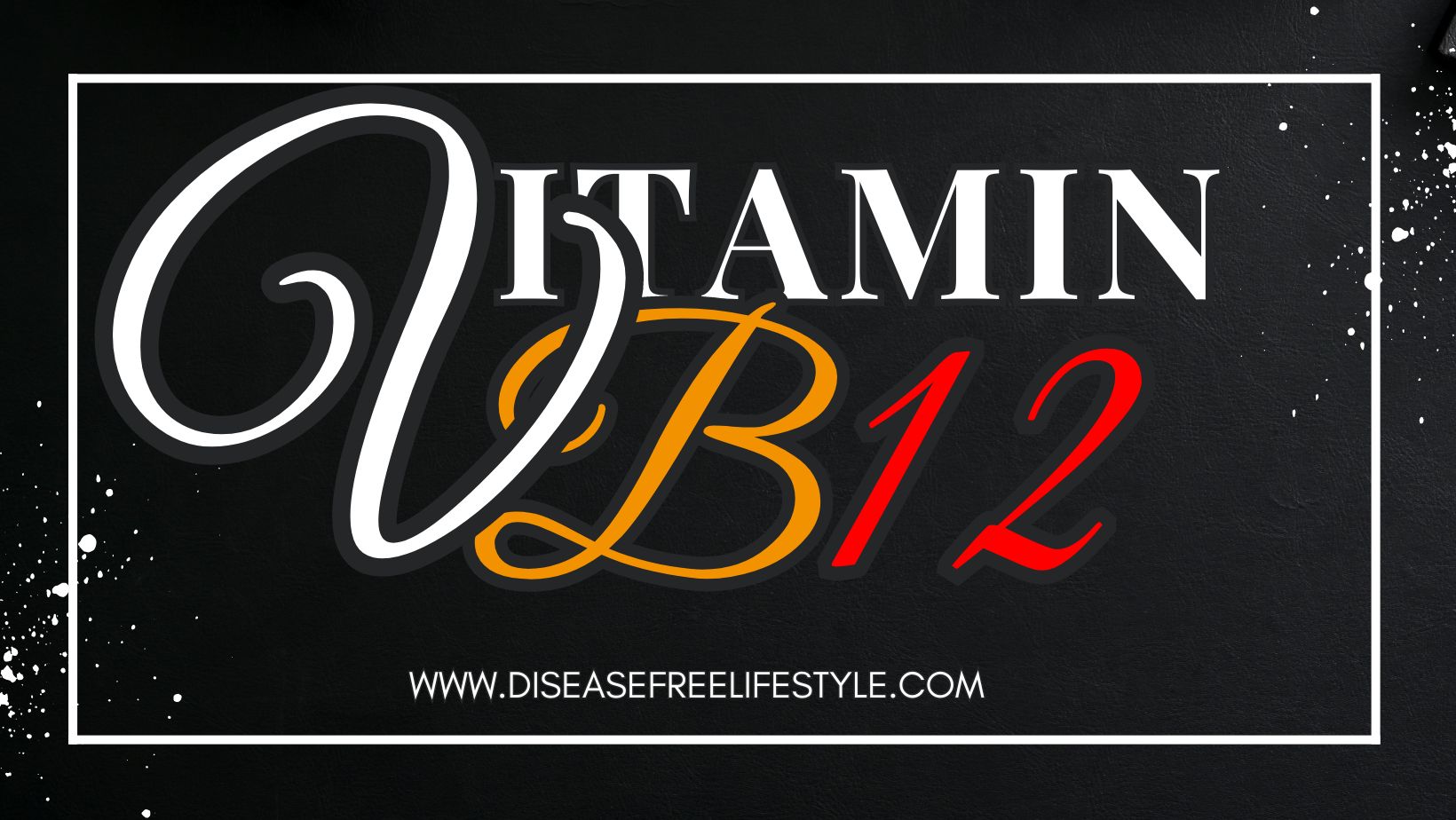Leading a healthy disease-free lifestyle is not only essential for our physical well-being but also for our overall quality of life. In today’s fast-paced world, where stress and sedentary lifestyles have become the norm, maintaining good health has become more crucial than ever. Living a disease-free healthy lifestyle is the ultimate goal for many individuals. Unfortunately, thousands of people are unaware of the significant impact their daily habits. It is disheartening to see the people have been suffering from dreadful diseases like diabetes, high blood pressure, heart failure, and chronic kidney disease. The good news is that adopting a healthy lifestyle can significantly reduce the risk of developing these ailments and even prevent premature death. In this article, we will explore the importance of a disease-free healthy lifestyle and how it can be achieved. Let us take charge of our lives and embrace the excellent lifestyle for a brighter and healthier future.

What is Lifestyle?

Lifestyle refers to the way individuals, groups, and societies live their lives in specific contexts such as geographical, economic, political, cultural, and religious factors. It encompasses the day-to-day behaviors, activities, and choices individuals make regarding their jobs, leisure activities, and diet.
The Significance of Lifestyle in Health
Over the past few decades, researchers have increasingly recognized the importance of lifestyle in determining our health outcomes. Researchers have also shown that daily habits and actions play a crucial role in the development and management of chronic diseases, particularly cardiovascular disease (CVD), diabetes, blood pressure etc. In fact, studies have demonstrated that individuals who adopt a cluster of these lifestyle practices can reduce their risk of CVD and diabetes by over 80% and 90%, respectively.
Despite the overwhelming evidence supporting the impact of lifestyle factors on disease prevention, a relatively small percentage of individuals are following these practices. For instance, the American Heart Association estimates that only 5% of individuals adhere to all the recommended lifestyle factors for ideal cardiovascular health. This highlights the need for more widespread awareness and implementation of disease-free lifestyle strategies. According to the World Health Organization (WHO), roughly 60% of lifestyle factors correlated to individual health and quality of life are related to lifestyle choices. This means that our lifestyle significantly impacts our overall well-being.
Unhealthy lifestyle choices can lead to various health issues, including metabolic diseases, joint and skeletal problems, cardiovascular diseases, hypertension, obesity, and even mental health disorders. It is crucial to understand the relationship between lifestyle and health to address these concerns effectively.
Realizing the Impact of Lifestyle on Disease
Our lifestyle choices play a pivotal role in determining our health outcomes. Unhealthy habits, such as smoking, poor diet, lack of exercise, and high levels of stress can increase the risk of developing various diseases. On the other hand, adopting a disease-free healthy lifestyle that includes regular physical activity, a balanced diet, stress management, and avoidance of harmful substances can significantly reduce the risk of disease and promote overall well-being.
The American Heart Association’s Call for Prevention
Recognizing the impact of lifestyle on disease, the American Heart Association (AHA) has emphasized the importance of prevention in reducing the development of risk factors for cardiovascular disease (CVD). Their 2020 Impact Goal aims to improve population cardiovascular health by 20% and reduce CVD mortality by 20%. The focus on prevention highlights the significance of adopting a disease-free healthy lifestyle as a primary defense against these diseases.
The Link Between Lifestyle and Disease
Extensive research has shown the link between lifestyle and disease is a well-established and significant aspect of public health. Various chronic conditions, for instance heart disease, diabetes, lung cancer and cardiovascular diseases are closely connected to lifestyle choices. Factors like diet, physical activity, tobacco use, and alcohol consumption play pivotal roles in shaping individual health outcomes.
A sedentary lifestyle, poor dietary habits, and smoking are associated with an increased risk of developing chronic diseases. Conversely, adopting a healthy lifestyle that includes regular exercise, a balanced diet rich in fruits and vegetables, and avoiding harmful habits can substantially reduce the risk of many diseases. Additionally, mental health is intertwined with lifestyle, as chronic stress and inadequate sleep patterns can contribute to both physical and mental health issues. Recognizing and addressing the link between lifestyle choices and disease is crucial for public health initiatives, encouraging individuals to make informed decisions that can positively impact their overall well-being and mitigate the burden of preventable diseases.
The Role of Cardiovascular Health in Disease Prevention
A groundbreaking study conducted by researchers from Boston University School of Medicine sheds light on the relationship between cardiovascular health and disease prevention. The study, based on data from the Framingham Heart Study (FHS), tracked participants for approximately 16 years to assess the development of diseases or mortality. The findings revealed that individuals who maintained intermediate or ideal cardiovascular health for longer periods were significantly less likely to develop hypertension, diabetes, chronic kidney disease, cardiovascular disease, or die prematurely compared to those in poor cardiovascular health.
The Components of a Healthy Lifestyle
While the benefits of a healthy lifestyle are well-established, it is essential to understand the key components that contribute to overall well-being. By incorporating the following habits into our daily lives, we can significantly reduce the risk of disease and promote optimal health:
- Regular Physical Exercise
Engaging in regular physical activity is vital for maintaining a healthy weight, improving cardiovascular health, and reducing the risk of chronic diseases. Target for at least 150 minutes of moderate-intensity aerobic activity or 75 minutes of high-intensity aerobic activity per week, as well as muscle-strengthening exercises twice a week.
Balanced and Nutritious Diet
- The Key Components of a Balanced Diet Typically Include
- Fruits and Vegetables: Rich in vitamins, minerals, fiber, and antioxidants, fruits and vegetables are essential for overall health and disease prevention.
- Whole Grains: Foods like brown rice, whole wheat, oats, and quinoa provide complex carbohydrates, fiber, and various nutrients.
- Protein Sources: This includes lean meats, poultry, fish, eggs, dairy products, legumes, nuts, and seeds, providing essential amino acids for muscle repair, growth, and overall body function.
- Dairy or Dairy Alternatives: A good source of calcium and other essential nutrients for bone health. This can include milk, cheese, yogurt, or fortified plant-based alternatives.
- Healthy Fats: Sources of healthy fats, such as avocados, nuts, seeds, and olive oil, contribute to cardiovascular health and support various bodily functions.
- Limited Sugar and Salt: Reducing the intake of added sugars and salt is important for preventing chronic diseases such as heart disease and diabetes.
- Hydration: Water is crucial for various bodily functions, and maintaining proper hydration is a key aspect of a balanced diet.
The specific nutritional needs may vary based on factors such as age, sex, activity level, and health conditions. It’s important to emphasize variety and moderation in food choices to ensure a diverse range of nutrients and to avoid overconsumption of any particular food group. Consulting with a healthcare professional or a registered dietitian can provide personalized guidance based on individual needs and health goals.
- Stress Management

Long-lasting chronic stress can have harmful effects on both physical and mental health. Adopting stress management techniques, such as mindfulness, meditation, yoga, and regular relaxation exercises, can help reduce stress levels and promote overall well-being.
- Regular Health Check-ups

Routine health check-ups play a crucial role in disease prevention. Regular screenings for conditions like high blood pressure, diabetes, and cholesterol levels can help identify potential health risks early on, allowing for timely intervention and management.
- Quality Sleep | The Power of Resting for Optimal Health

Sound or deep dreamless sleep from 10 PM to 4 PM is a fundamental aspect of a healthy life. It is vital for reducing the risk of chronic diseases, such as diabetes, heart disease, obesity, and depression. Sleep disorders can have various social, psychological, economic, and health consequences. Lifestyle choices can influence our sleep patterns, and quality sleep, in turn, has a significant impact on our mental and physical health. Prioritizing adequate sleep is crucial for overall well-being.
As an adult, aim for at least 7 hours of sleep per night to support your physical and mental well-being. Establishing a regular sleep routine, creating a comfortable sleep environment, and practicing relaxation techniques before bedtime can all contribute to better sleep quality and optimal health.
- Recreation

Leisure and recreation are important aspects of a balanced lifestyle. Neglecting leisure time and engaging in unhealthy recreational activities can have negative consequences on our health. It is essential to prioritize healthy and enjoyable recreational activities to enhance our overall well-being.
- Study Promotes Mental Health

Continuous learning and intellectual stimulation through study contribute to a healthy lifestyle. Education has been linked to a lower prevalence of cognitive disorders like Alzheimer’s disease. Making education and lifelong learning a part of our lifestyle can help prevent cognitive decline and promote mental health.
The Influence of Religion

Religious influences on mental and physical well-being is a complex and multifaceted phenomenon that has been studied extensively across various cultures and belief systems. For many individuals, religious practices and beliefs serve as sources of comfort, meaning, and social support, contributing positively to their mental health. Engaging in prayer, meditation, or religious rituals may provide a sense of purpose, reduce stress, and foster resilience in the face of life’s challenges. Moreover, religious communities often offer a sense of belonging and a support network, which can contribute to overall psychological well-being. On the physical health front, some studies suggest that religious involvement may be associated with lower rates of certain health issues, potentially due to a combination of healthier lifestyle choices and the stress-buffering effects of religious practices. However, it is important to note that the relationship between religion and well-being is complex, with individual differences and contextual factors playing significant roles, and the impact of religious beliefs on mental and physical health may vary widely from person to person.
Negative Impacts on Health
- Avoiding Tobacco and Alcohol
Tobacco use is a leading cause of preventable diseases, such as lung cancer, heart disease, and stroke. Quitting smoking or never starting can have a profound impact on overall health. Similarly, excessive alcohol consumption can lead to liver disease, cardiovascular problems, and addiction. Moderation or complete avoidance of alcohol is crucial for maintaining a healthy lifestyle.
- Sexual Behavior

Maintaining a healthy sex life is essential for a fulfilling and healthy lifestyle. Dysfunctional sexual relationships can lead to both mental and physical health problems. It is crucial to address any issues related to sexual behavior to ensure a healthy and satisfying life.
- Substance Abuse

Substance abuse refers to the harmful or hazardous use of psychoactive substances, including alcohol and illicit drugs including cigarette smoking. It is a prevalent unhealthy lifestyle choice. It causes cardiovascular diseases, asthma, cancer, and brain injuries. It involves the excessive and inappropriate consumption of these substances, leading to negative consequences for an individual’s physical and mental health, social relationships, and overall well-being. The excessive consumption of it brings the negative consequences, indicating a loss of control over one’s substance use. Addressing substance abuse typically involves a combination of medical, psychological, and social interventions to help individuals overcome dependency and regain control of their lives. . It is crucial to raise awareness about the negative consequences of substance abuse and encourage individuals to adopt healthier alternatives.
- Medication Abuse
Unhealthy behaviors related to medication use, such as self-treatment, sharing medications, and using drugs without a prescription, are common in certain populations. These practices can have detrimental effects on the individual’s health and may lead to severe complications and drug resistance. Promoting responsible medication use is essential for a healthy lifestyle.
- Over Application of Modern Technologies
While technological advancements have improved our lives in many ways, misuse and overuse of technology can have adverse effects on our physical and mental health. Excessive use of devices, such as computers and mobile phones, can disrupt sleep patterns and contribute to mental health issues like depression. Balancing the use of technology and setting healthy boundaries is crucial for maintaining a healthy lifestyle.
Motivating Individuals to Embrace a Healthy Lifestyle
Despite the overwhelming evidence supporting the benefits of a healthy lifestyle, many individuals struggle to make positive changes. Lack of awareness, societal pressures, and personal barriers often hinder efforts to adopt healthier habits. It is imperative to motivate and educate individuals about the long-term benefits of a disease-free healthy lifestyle. By emphasizing the positive impact on overall well-being, quality of life, and longevity, individuals can be encouraged to prioritize their health.
Conclusion
Leading a disease-free healthy lifestyle is not only an individual responsibility but also a collective endeavor. By making conscious choices to prioritize our health and well-being, we can significantly reduce the risk of developing chronic diseases and live a fulfilling life. The evidence is clear: adopting healthy habits such as regular physical activity, a balanced diet, stress management, and avoidance of harmful substances can have a profound impact on our overall health. Let us take charge of our lives and embrace a disease-free healthy lifestyle for a brighter and healthier future.
Remember: Your health is your greatest wealth!
N.B:
This article is for informational purposes only and should not be considered as medical advice. Always consult with a healthcare professional before making any changes to your lifestyle or treatment plan.
References:
- Ziglio E, Currie C, Rasmussen VB. The WHO cross-national study of health behavior in school-aged children from 35 countries: findings from 2001-2002. J School Health. 2004;74(6):204-206.
- World Health Organization. Services for prevention and management of genetic disorders and birth defects in developing countries. WHO/HGN/WAOPB-D/99.1.
- Karimi M, Heidarnia A, Ghofranipur F. Effective factors on using medication in aging by using healthy belief. J Arak Med Uni. 2010;14(5):70-78.
- IRNA. Iran as a second country in using drugs in Asia. Available at: www.irna.ir www.irna.ir/fa/news/81330471/.
- Mozaffarian D, Hao T, Rimm EB, Willett W, Hu FB. Changes in diet and lifestyle and long-term weight gain in women and men. N Engl J Med. 2011;364:2392-2404.
- Dunn AL, Anderson RE, Jakicic JM. Lifestyle physical activity interventions: history, short and long-term effects, and recommendations. Am J Prev Med. 1998;15(4):398-412.
- C3 collaborating for health. The benefits of physical activity for health and wellbeing. Available at: www.c3health.org www.c3health.org/wwp-content/uploads/2009/09/C3-review-of-physical-activity-and-health-v-1-20110603.pdf.
- Farhud DD, Malmir M, Khanahmadi M. Happiness as a healthy lifestyle. Iranian Academy of Medical Science. (In press)
- Farhud DD, Tahavorgar A. Melatonin hormone, metabolism & its clinical effects: a review. Iran J Endocrinol Metabol. 2013;15(2):221-236.










